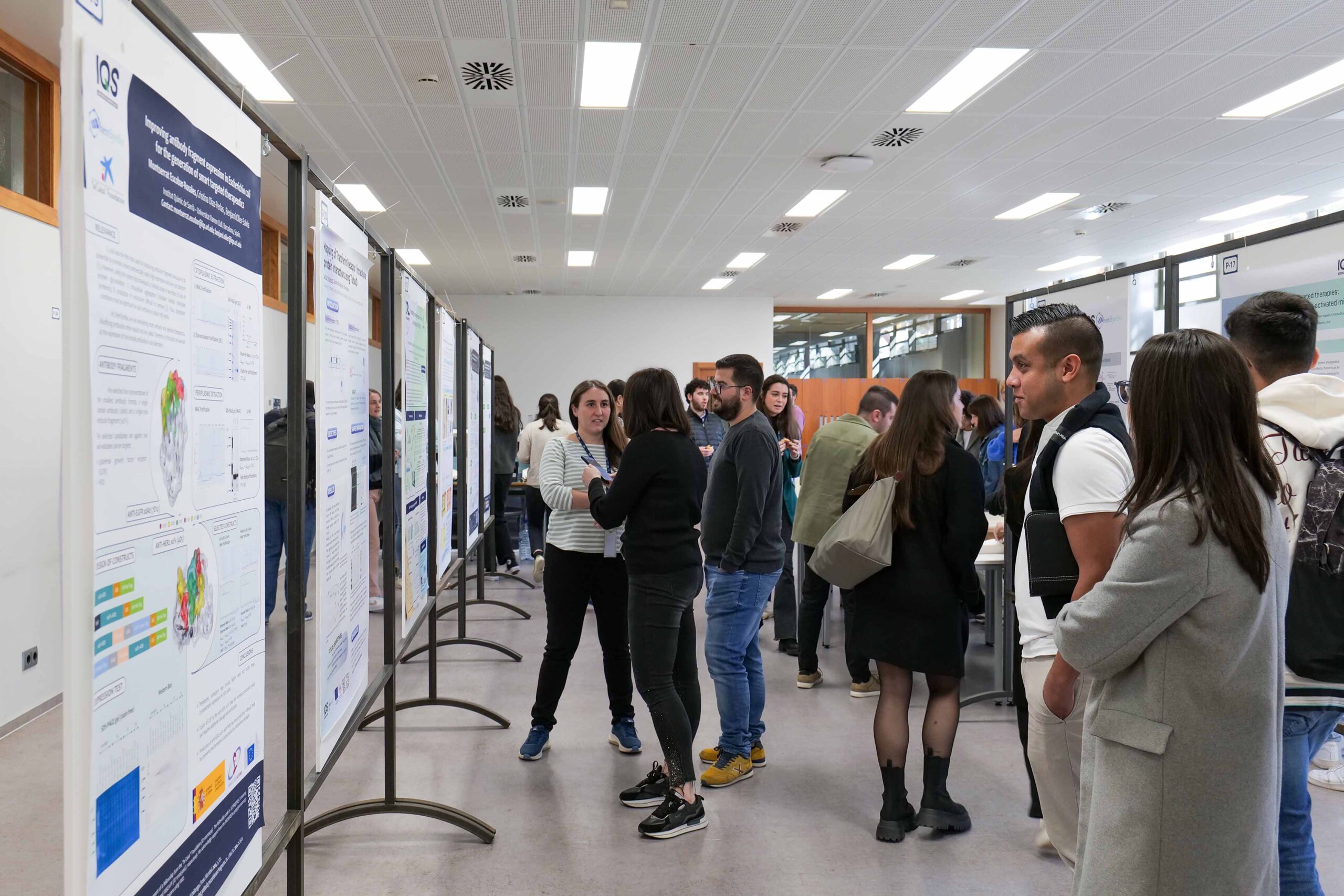The organization of meetings such as the 3rd PhD Students Day, where doctoral students are the stars of the show, fosters collaboration, and boosts the quality of research at our school as students can share their projects and establish alliances between research groups.
The 3rd IQS PhD Students Day took place on 14 November and featured attendance by nearly all doctoral students at the school. Some master’s degree students interested in continuing their education by doing a doctorate also participated. It was great to see such a full room and experience all the activities that took place throughout the event!
The organization of meetings like this one fosters collaboration and boosts the quality of research. Sharing projects through the presentation of posters and oral communications is an excellent practice, as well as a way to establish alliances between research groups.
In general, thesis supervisors maintain a certain distance from this event. The stars of the show are the doctoral students and they are able to establish contact networks, share experiences, and organize themselves to make the day a success.
The opening lecture this year, by Dr Filippo Piccinni (Senior Assistant Professor at the University of Bologna, Italy), entitled “Opportunities in 2025 for boosting publication rates and securing short-term fellowships in Europe,” was aimed directly at this group. He told the PhD students about the importance of the technological opportunities that we currently have at our disposal and how to make good use of them in our daily lives. He also mentioned that doing a doctorate represents a change to the future of their professional life and how relationship networks that are established with other members of research groups in the various areas can help them position themselves as experts in certain scientific and technological fields. Finally, he devoted a large part of his presentation to making recommendations for obtaining competitive funds and grants for their projects, including pre-doctoral contracts or mobility grants, as well as how to publicize and publish the results of their research activity.
We often say that doctoral students are “our future talent,” that society needs them, and that it is essential that they share the knowledge they generate so it reaches society. We would also like to highlight that this period of three or four years is very intense and requires a lot of work and effort, but is also a very rich and satisfying experience at the same time. It’s an experience students will remember for a lifetime!
As I have said other times, research and technology transfer activities are what differentiate a university of excellence from other schools that act more like academies, in which their focus is teaching, while research is perfunctory, rare, and low-level. The existence of doctoral programmes is key to the success of the university’s internal scientific and technological research.
Without this group of researchers in training, it would be much more difficult to achieve success in research. When there is a relevant critical mass and extraordinary talent, research reaches levels of excellence. And this is what we saw during this event: the scientific quality of the projects, the impeccable English used in the oral presentations, the communication skills, the presence and style in front of an audience, and the ability to summarize in a four-minute presentation or in a poster the most essential points of a project, the designs used, etc.
Doing a doctorate has a twofold aspect. First is the training, through which future professionals are prepared to carry out research projects and contribute to scientific and technological development. On the other hand, the purely scientific side, PhD studies are aimed at creating new knowledge and disseminating it to society in general, as well as to the industrial sector understood as broadly as possible.
To get an idea of magnitude, during academic year 2023-24, 19 doctoral theses were defended at IQS:
- 9 in the PhD in Chemistry and Chemical Engineering
- 8 in the PhD in Bioengineering
- 2 in the PhD in Business and Territorial Competitiveness, Innovation and Sustainability
Currently, there are 91 students enrolled in the three doctoral programmes offered by IQS (48 women and 42 men):
- 48 in the PhD in Chemistry and Chemical Engineering
- 29 in the PhD in Bioengineering
- 14 in the PhD in Business and Territorial Competitiveness, Innovation and Sustainability
We would like to give our thanks to the entire team that, year after year, makes this event possible by dedicating time to the organization so everything runs perfectly. We would also like to thank all the people who have participated, either by making presentations, by acting as a jury member, or by participating in roundtables. Also, we should not forget the sponsorship by AIQS Alumni and the company IHT, dedicated to the development, manufacture, and marketing of medical devices. We would like to extend our warmest thanks to both entities.
Finally, we would like to give congratulations to all the people who have received an award during the event and who are undoubtedly a reflection of the quality and high-level research being conducted at IQS.
Dr Nuria Vallmitjana
Director of IQS Tech Transfer










